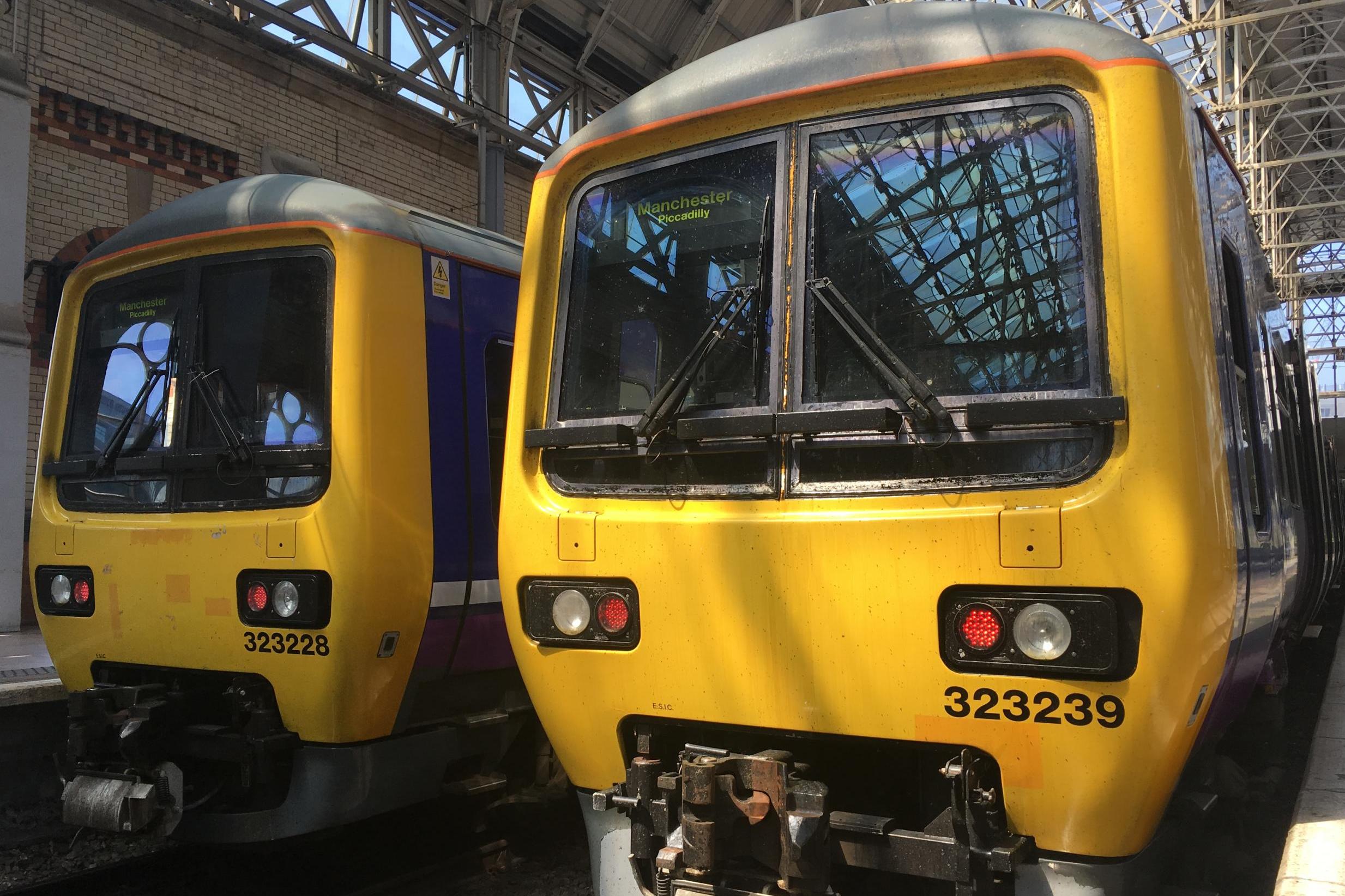Transport Secretary Chris Grayling knew 'weeks in advance' new train timetables would be disastrous
The Man Who Pays His Way: Thameslink and the transport secretary were already aware that the new rail timetables would be a fiasco for commuters

Your support helps us to tell the story
From reproductive rights to climate change to Big Tech, The Independent is on the ground when the story is developing. Whether it's investigating the financials of Elon Musk's pro-Trump PAC or producing our latest documentary, 'The A Word', which shines a light on the American women fighting for reproductive rights, we know how important it is to parse out the facts from the messaging.
At such a critical moment in US history, we need reporters on the ground. Your donation allows us to keep sending journalists to speak to both sides of the story.
The Independent is trusted by Americans across the entire political spectrum. And unlike many other quality news outlets, we choose not to lock Americans out of our reporting and analysis with paywalls. We believe quality journalism should be available to everyone, paid for by those who can afford it.
Your support makes all the difference.So that you didn’t have to, I spent Thursday reading the Glaister Report. And the deeper I delved, the more appalled and despondent I became about Britain’s railways.
Even if you have not been near a commuter train for years, you may know the headline conclusion of the inquiry by the Office of Rail and Road (ORR) into the summer timetable fiasco in northwest and southeast England. “It was unclear who was responsible for what,” says Professor Stephen Glaister, chair of the ORR. “Nobody took charge.”
His report concludes that millions of commuters were let down by failures across the rail industry and by the Department for Transport.
All the parties involved say they are terribly sorry for the shambles in which hundreds of trains were cancelled each day on Northern Rail and Thameslink. But closer inspection of the Glaister Report reveals a story line absurd even by pantomime standards.
Where’s the next train to Luton? “It's behind you!”
Page 157 explains that while hundreds of timetabled trains were cancelled each day, extra services would sometimes appear – but without waiting passengers being told. “Trains were run without prior notice, information about intermediate stations or [the] platform they would be going from,” notes the report. Unsurprisingly, many of these ghost trains ran half-empty.
Within hours of the new timetable taking effect at 2am on 20 May, it started to unravel. I went along to Blackfriars Station – the southern hub of the Thameslink trans-London corridor – soon after dawn that day to discover widespread cancellations.
By Monday morning it was clear that the system couldn’t cope. In pantomime fashion, both GTR – the company that runs Thameslink – and the transport secretary, Chris Grayling, feigned shock that such a thing could happen.
Quelle surprise?
Non. Both parties knew weeks before that the new timetables would prove horrible for commuters.
On 2 May, I learn from pages 147-8, the train operator met the transport secretary. “At this meeting GTR stated that the scale of likely cancellations was 80 to 100 per day.”
“That will make life very difficult for tens of thousands of passengers every day, so surely we should warn them?” said absolutely nobody at that meeting.
At times of severe disruption, the rail industry can unify to help the passenger. “Mutual ticket acceptance” is frequently deployed. It means, for example, that if you have an LNER ticket from York to Newcastle but that train operator has problems on the day, you can travel on CrossCountry or TransPennine Express services instead.
So how long did it take the Rail Delivery Group – representing Britain’s train operators plus Network Rail – to put in place full mutual ticket acceptance to help travellers on Thameslink and Northern?
Twenty days.
On page 126, Professor Glaister’s report calls this delay “disappointing”. Commuters may prefer a stronger term.
More staggering is the revelation on page 158 that it was weeks before one component of GTR, Gatwick Express, agreed to carry stranded passengers between Brighton and London for another component of GTR, Thameslink.
Even then, the intra-company deal “appeared to only happen as a result of a passenger campaign”. The ORR calls this delay “unhelpful”.
Again, were you were left standing on the platform at Brighton or forced to pay a penalty fare for catching the wrong kind of GTR train, you might choose a different adjective.
But please don’t blame the poor bloody infantry who work on the railway.
The one positive aspect of the Glaister Report is how well the staff performed: “Through no fault of their own, a number of railway employees were placed in circumstances that asked a very great deal of them: this includes those in passenger-facing positions and those being asked to write and endlessly rewrite railway timetables to unreasonable deadlines.”
Station staff did their best, even though they were kept as much in the dark as the passengers.
“The worst thing, we couldn’t get any information,” said one railway worker interviewed for the report. “We were trying to find out why trains weren’t stopping at certain stations, we tried to get through to control … we couldn’t get information to give.”
Another said: “People were coming up literally crying because trains had been that delayed, they were going to be late at work, they were going to get the sack.”
The passengers certainly didn’t deserve to lose their jobs. I’m not so sure about the rail bosses and the transport secretary.
Join our commenting forum
Join thought-provoking conversations, follow other Independent readers and see their replies
Comments